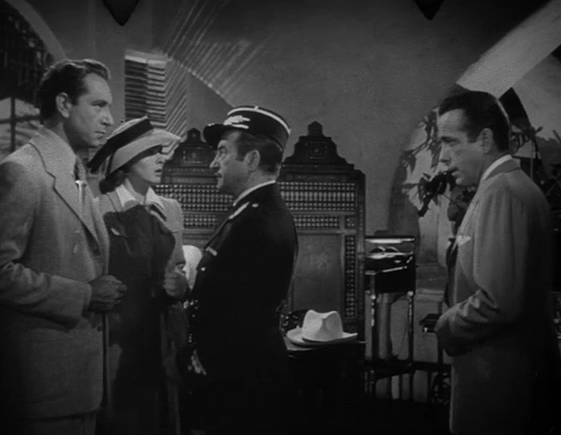Casablanca never could have been made today.
The classic movie, which turned seventy-five this year, features themes that would never fly in today’s world: that personal happiness is not the most important goal; that feelings ought to be ignored at times; and that romantic love isn’t always worth pursuing.
Talk about retro values.
In case you’re one of the few Americans unfamiliar with Casablanca, the movie’s plot centers on whether café owner Rick Blaine will give to his ex-girlfriend, Ilsa Lund, and her Nazi resistance hero husband, Victor Laszlo, a pair of permission slips he has that would enable the couple to leave Casablanca for Lisbon (where they would head to America). These travel papers would enable the couple to depart without complications, no small feat in the political climate of Casablanca, where there is considerable interest in capturing Laszlo, who has already escaped once from a concentration camp.
Understandably, Rick—who Ilsa left without explanation beyond a simple note when the Germans occupied Paris—isn’t keen to pass on the travel papers to his ex and her husband. But in the end, he does—and in the process undergoes a moral journey that (without irony) considers good, evil, and man’s role in history.
“I know how you feel about me, but I’m asking you to put your feelings aside for something more important,” Ilsa begs Rick, when she is pleading for the letters of transit she and Victor need. Moments later she scolds him, “There is so much at stake and all you can think of is your own feeling.”
In other words: Forget “follow your heart.”
Right now, it’s hard to escape the prevalent cultural fantasy of a romantic happily ever after. Just consider the wedding industrial complex, which seems to grow and grow with each passing year: the average wedding cost in 2016 was a whopping $35,329, according to TheKnot.com, as budgets bulge to match fairy tale fantasies. Meanwhile, TV shows like the popular The Bachelor and The Bachelorette franchises and movies like the romantic comedies featured on the popular Hallmark channel hype love. Valentine’s Day has burgeoned into a major consumer holiday, with Americans expected to average about $137 in spending this year, according to the National Retail Federation. And dating websites—from Tinder to Bumble to Match to Coffee Meets Bagel (and all the gazillion other ones)—continue to flourish.
Of course, love (and marriage) is something to celebrate. But Casablanca squarely refuses to put romantic love and happiness as the ultimate end of life and fulfillment, ending its story with a friendship, not a romance. Rick and Ilsa are in love—and the movie suggests Ilsa does love Rick more than Laszlo, and certainly more passionately—but there is also something greater than their love.
As Rick is announcing the final decision—that he will give the travel papers to Ilsa and Laszlo, and not come himself, he delivers one of the movie’s most famous lines: “It’s easy to see the problems of three people don’t matter a hill of beans in this crazy world.”
There will be no happily ever after for Rick and Ilsa, no wedding as Rick once dreamed of as they planned to escape Paris before the Germans came. In violation of his feelings, he has chosen to allow one of the Nazis’ most determined opponents to escape, and in doing so, has put the freedom and lives of others ahead of his own happiness.
“Each of us has a destiny for good or for evil,” Laszlo tells Rick at a critical moment. In our often self-centered (and romance-obsessed) culture, Casablanca provides a refreshing antidote, a reminder that we were meant to do more than merely indulge our desire for instant gratification or happily-ever-afters. We each have a role to play in this crazy world, and it is long past time our culture revisited a movie that reminds us to take that charge seriously.
—
This article has been republished with permission from Acculturated.
















Leave a Comment
Your email address will not be published. Required fields are marked with *